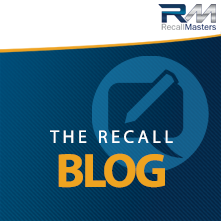How to Prepare your Dealership for Proposed Recall Legislation
How to Prepare your Dealership for Proposed Recall Legislation
A Blog Post by Sean Reyes, Chief Marketing Officer for Recall Masters
As used car sales continue to climb, legislators are now more cognizant of and are focusing on how dealerships are selling pre-owned inventory without first getting safety recalls repaired.
As I covered in my previous blog, a bill is currently being put forth to Congress that mandates the completion of any recall repair before selling a used vehicle. The interesting thing is that, even if things returned to pre-COVID conditions tomorrow, the demand for used vehicles would not necessarily die off. According to an article in Forbes, shoppers with excellent credit are choosing used vehicles over new ones because they offer a better value for the price.
So, it may pay to take a look at your best practices and consider placing safety first when it comes to selling used vehicles. Some things may need to change to protect your dealership from any future legislation.
To keep it simple, here are three best practices you can easily include in your process right now that can help prepare your staff for pending legislation. These points will also help you market to and reassure customers that your dealership cares about their safety.
- Proactive Safety Measures – While this might seem like a hardship that slows turn times, how about making friends with your local brand competitors and then come to an agreement where they repair your safety recalls quickly for any off-brand pre-owned inventory and you do the same for them. This also applies if you are part of an auto group. The other franchises have the same issues and, while it may seem counterintuitive to work with a competitor, in the end, it helps all of you sell vehicles faster and market them to consumers as safe and recall-free.
- Be More Selective at Auctions – This is a no-brainer. If you don’t want to deal with the first scenario, you can use technology to do a VIN scan on vehicles to identify any with open safety recalls BEFORE bidding. Then, at the very least, you know in advance. If it’s your brand (or one that is in your auto group,) you can control how quickly that vehicle’s open safety recall is repaired and gets to your front line. If it is not a brand you carry, you need another dealership to help as fast as possible to get the repair done.
- Enhanced Disclosures –If you don’t want to do either of the first two options before the new legislation forces your hand, I would suggest that, at the very minimum, you ensure your used vehicle buyers know upon purchase exactly what open recalls exist — with safety recalls being the most important. Then, on top of that, include instructions on how and where to get the repairs done. At the minimum, this shows a customer that you care about their safety. Remember, your dealership is still subject to a product liability lawsuit if death or injury occurs as a result of that recall, whether or not you have signed disclosures. Recall disclosures only protect you from Lemon Laws, not product liability laws. In fact, signed disclosures are often submitted into court as evidence that the dealer willingly sold a dangerous vehicle despite knowing the danger posed.
The bottom line is that it is invaluable to be able to move your used inventory while also ensuring customer safety. There is nothing worse than having a customer in the box for a NEW vehicle, coming to an agreement, then discovering a stop-sale because of a safety recall. Well, this could soon happen with your used inventory too.
When (not if) this legislation passes, by being proactive now, you can have an edge over your competition as your inventory will be sale-ready. By failing to be proactive, you may find yourself scrambling to repair a bunch of inventory with open safety recalls, forced to pull them from the front line and sit on them until those repairs are completed. And that will cost more than any dealer wants to pay.
About the Author


